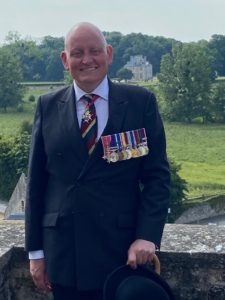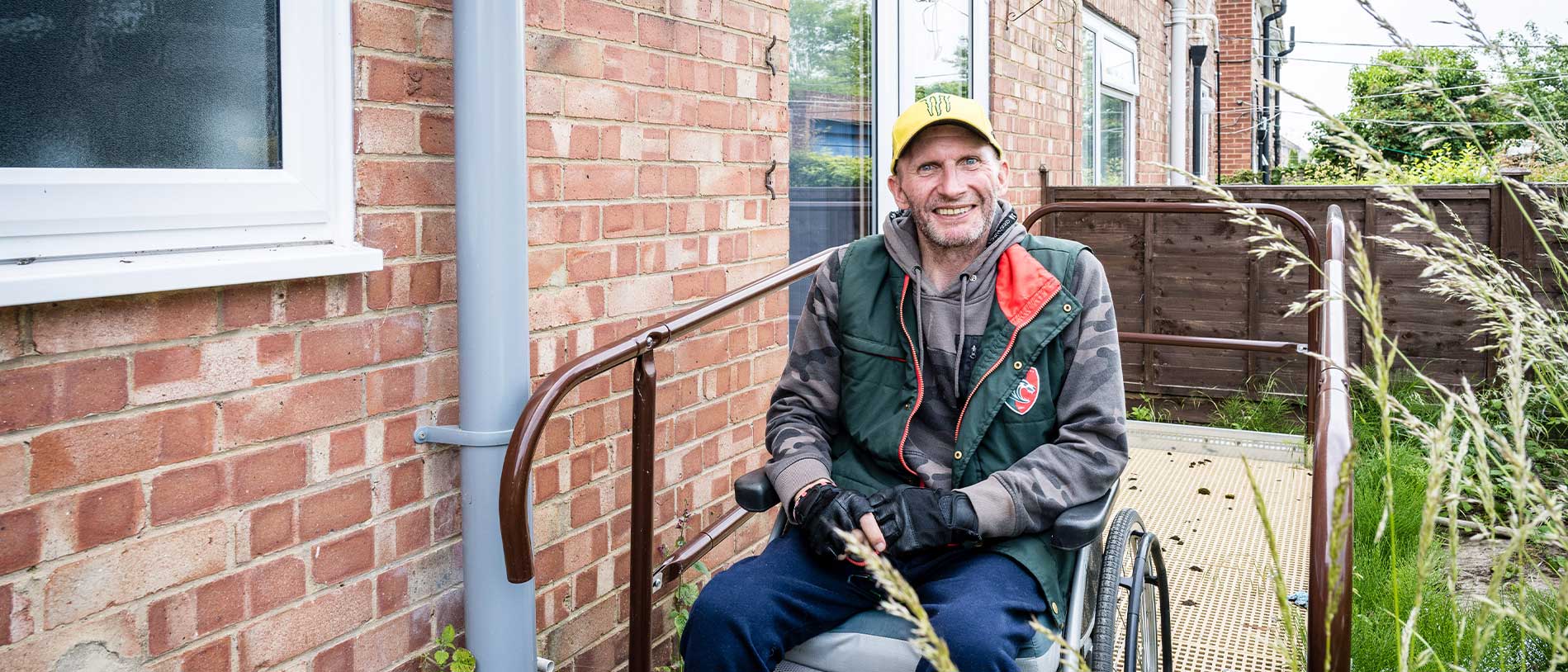Ahead of the D-Day 80 commemorations on 6th June, in which his Regiment is taking part, our CEO, Major General (Ret’d) Tim Hyams CB OBE, reflects on the significance of this anniversary for his Regiment and the charity:

In addition to being the Chief Executive of the Army Benevolent Fund, I am the Honorary Colonel of the Queen’s Own Yeomanry and Colonel of the Regiment of The Royal Dragoon Guards. The latter is the Regiment I commanded and in which I have served throughout my Army career.
As the Regiment’s Colonel, I am in Normandy for the 80th anniversary of D-Day, with my wife and my eldest son, who is a serving officer with the Regiment, and a number of serving and retired members of the Regimental family.
Early on the morning of D-Day, the Regiment’s tanks were the first across Gold Beach in Normandy. The Regiment’s first objective that morning was to secure the location where the British Normandy Memorial now is located. By the end of the day, they had secured it, and had moved on to reach their final objective for D-Day: a village called Creully, about six miles inland from Gold Beach. The Regiment had lost 19 of its 60 tanks by the end of D-Day.
Listed on the Regimental War Memorial in Creully are the 176 names of those from the Regiment who died between landing on D-Day and the end of the war in Europe. Each year, a service is held at the Memorial, attended by the entire village and members of the Regimental family, to remember the Regiment’s dead. The village’s primary school, L’Ecole Cecil Newton, is named after the one of the tank crewmen in B Squadron, who landed that morning. Cecil, who now is 100 years old, is here, attending the 80th anniversary commemorations of D Day in Creully; and we are honoured to be here with him.
During the annual service, the children from the L’Ecole Cecil Newton read out, one by one, each of the names on the Regimental Memorial. After the minute’s silence and the Regimental Piper’s lament, and before singing their own national anthem, they sing in English, without notes in front of them, our national anthem. It is very, very moving.
“For us as a Regiment, and as individuals who serve and have served within it, to be here at the 80th anniversary of D-Day and remember those who fought so valiantly within its ranks during the Normandy Campaign, is a deeply symbolic, historic, and emotional moment. And as Chief Executive of the Army Benevolent Fund, the event holds additional meaning, connecting as it does so clearly to our Charity.”
In 1944, whilst the campaign in Normandy was being fought, Churchill’s war cabinet decided that a national charity for the British Army was needed. As a result, the Army Benevolent Fund was founded to ensure that the soldiers who had fought during World War Two were looked after and did not experience the hardships that affected our soldiers after World War One.
Since our formation, as the Army’s national charity, we have worked closely with regimental charities to help look after their people when they fall into need. This has a very palpable connection with why I am in Normandy. As a Regiment, we are commemorating those who fought during World War Two. Equally, we continue to look after all of those who have served since, are serving now, and will serve in the future.
As I reflect on the 80 years that this charity has been in existence, we have always stayed – and will continue to stay – true to the guiding principles that it was set up in 1944 to achieve. This is, namely, to look after members of the Army family, whether they are serving soldiers, former soldiers, or their immediate families (including the bereaved), when they are in need of support, such that they can live with independence and dignity.

